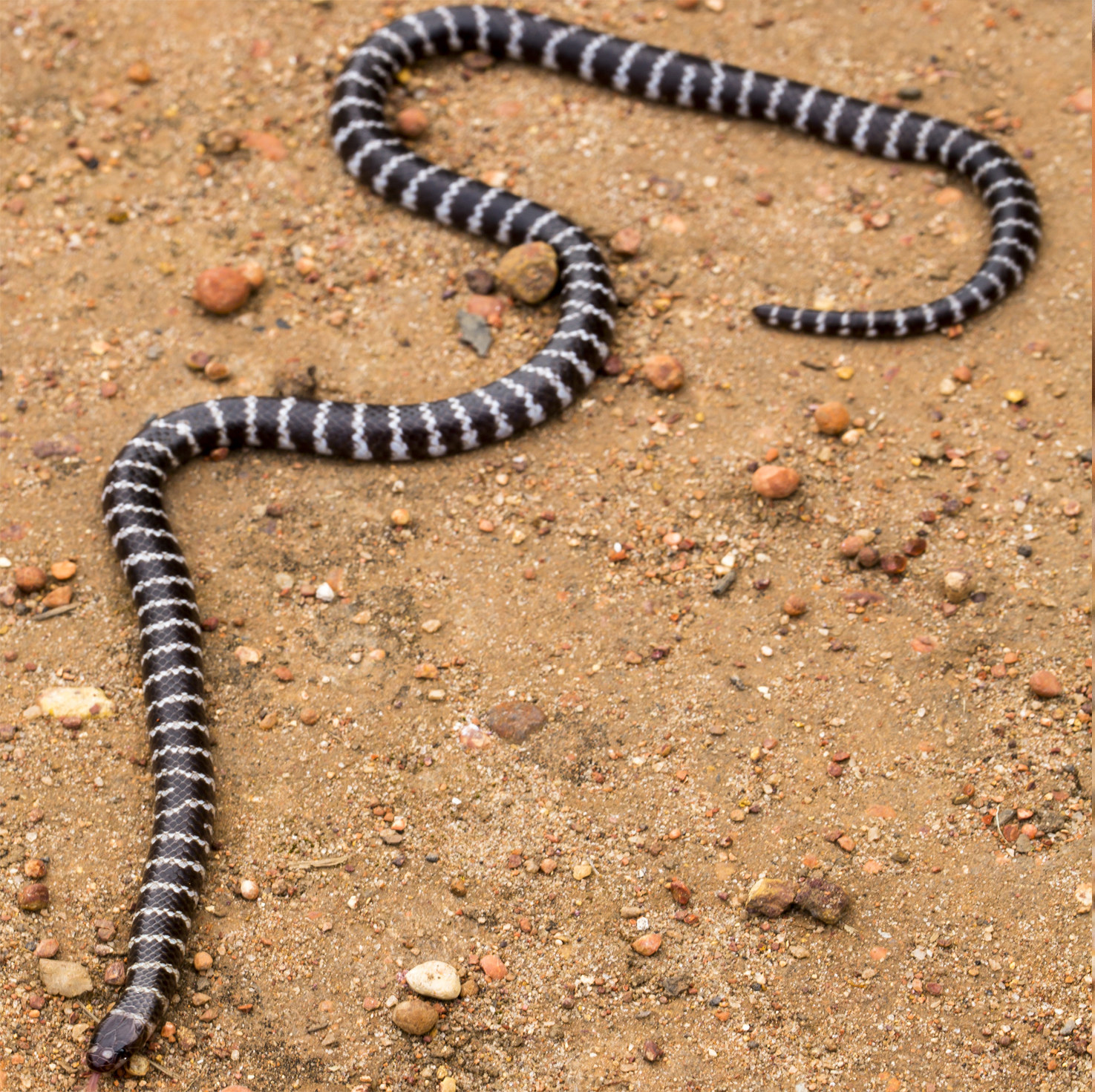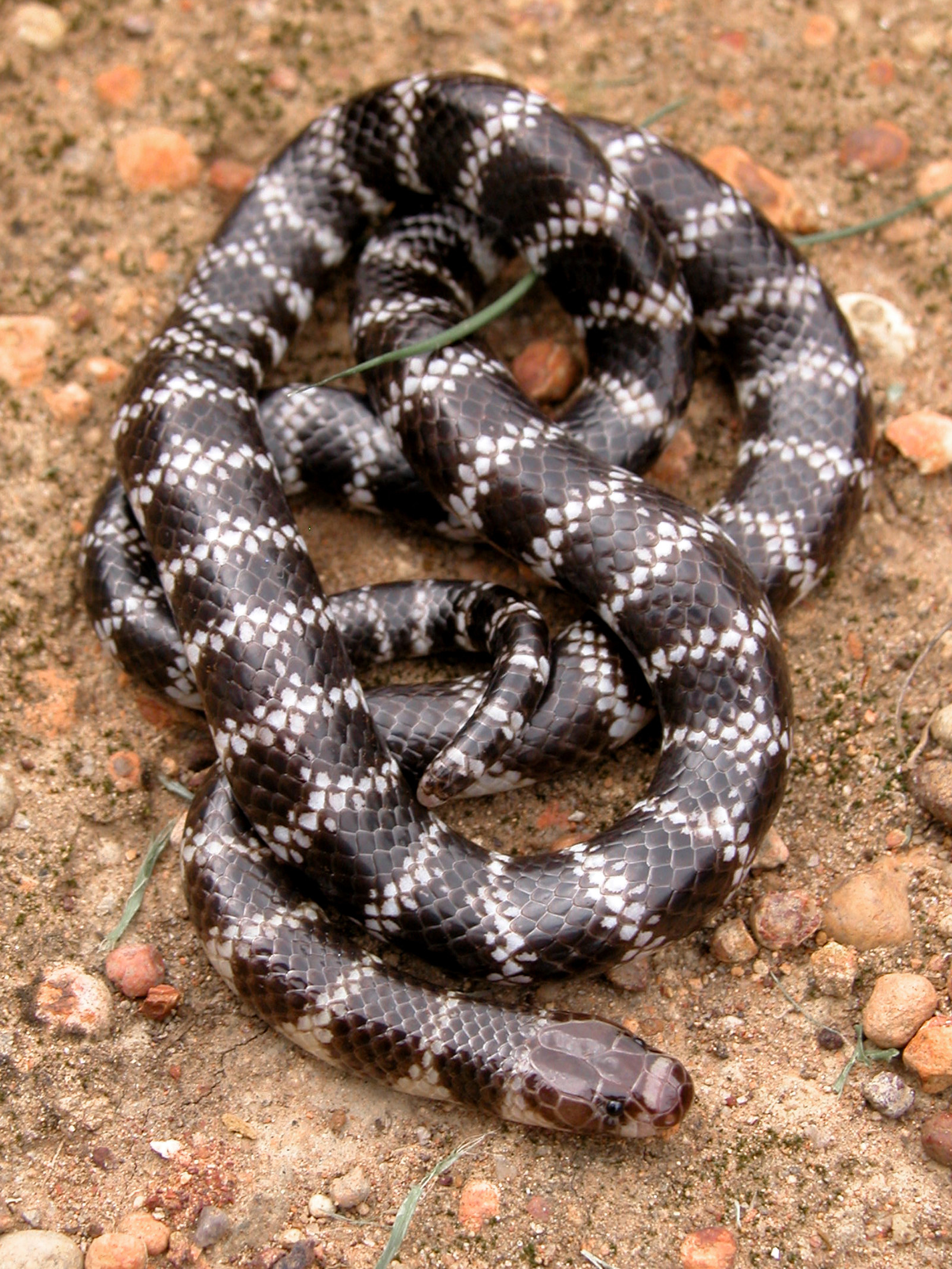A new species of bandy-bandy snake has been discovered in the Weipa region on the tip of Queensland's Cape York Peninsula.
Known as Vermicella parscauda the new species was discovered by researchers from the University of Queensland, who stumbled across the first specimen after an unrelated research expedition.
"This one was actually just by complete fluke," lead researcher, associate professor Bryan Fry, told BuzzFeed News. "We were out doing sea snake research and when we came into the dock that night, there at the end of the pier was a little bandy-bandy.
"We were like, 'What are you doing here? You're a burrowing snake, you're not supposed to be on a fishing dock!'"

The researchers concluded the snake must have escaped from a nearby Rio Tinto ship that was loading ore from a bauxite mine.
While the snake was found in 2014, the research team needed time to assess its genetics and morphology. It published its findings in the Zootaxa journal this month.
Parscauda has more bands than other known species of bandy-bandy and despite being venomous, it is not dangerous to humans as its venom is designed to prey on blind snakes and not mammals.

The snake is also thought to be extremely rare.
"With all of our intensive searching and looking through every museum specimen that we could find, and contacting people from the area and looking at photos of anything remotely like it, we could only find six," said Fry.
The University of Queensland team has now formally filed with Queensland Parks and Wildlife Service to have the snake declared as a threatened species.
Fry believes the bauxite mining is destroying the snake's habitat and could wipe it out completely.

"We're using it as a flagship species for that broader conversation of what kind of economy we want – do we want a short-term, low-tech economy of digging holes in the ground or do we want a sustainable economy that's built around using our biodiversity in a sustainable manner?"
